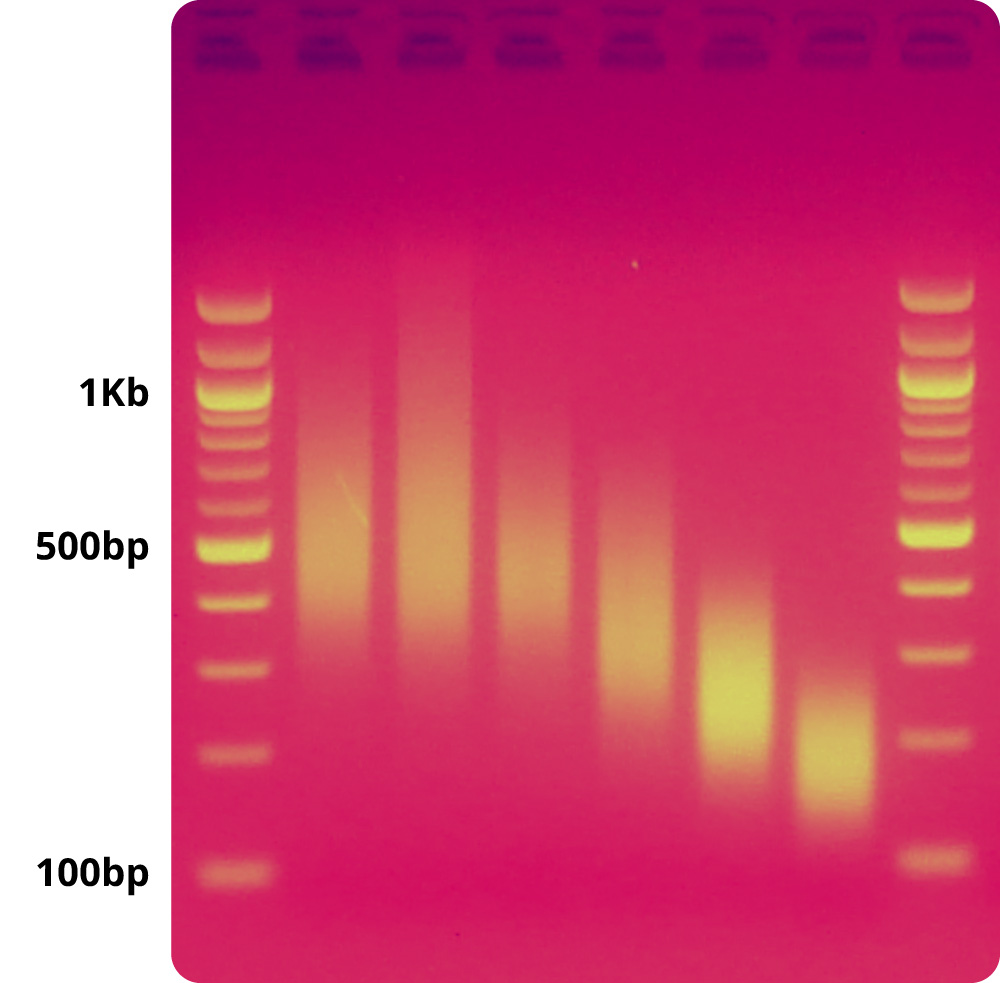Our goal is to provide NGS services for your project as if you were working directly with one of your research collaborators. We strive for a transparent and cooperative approach to NGS projects, and will communicate openly with you to find the right solution for your individual research design needs. We have decades of collective experience in molecular biology, including target capture & high-throughput sequencing, and working with difficult specimens.
In order to facilitate transparent, collaborative projects, we have opted to not offer specific guarantees for target capture & sequencing service projects, since every custom project is completely unique. In science, sometimes research projects do not go 100% according to plan. However, you will only pay for the services that we actually perform. We will give every project our individual attention, and all laboratory work is performed by hand on the bench by our team of dedicated & experienced researchers. We aim to provide you with the very same dedicated laboratory attention that you & your research team would give to your own work. You can be assured that we will communicate openly with you about all aspects of your project, and will not commit to a project before first discussing all the options with you.


 Bluesky
Bluesky